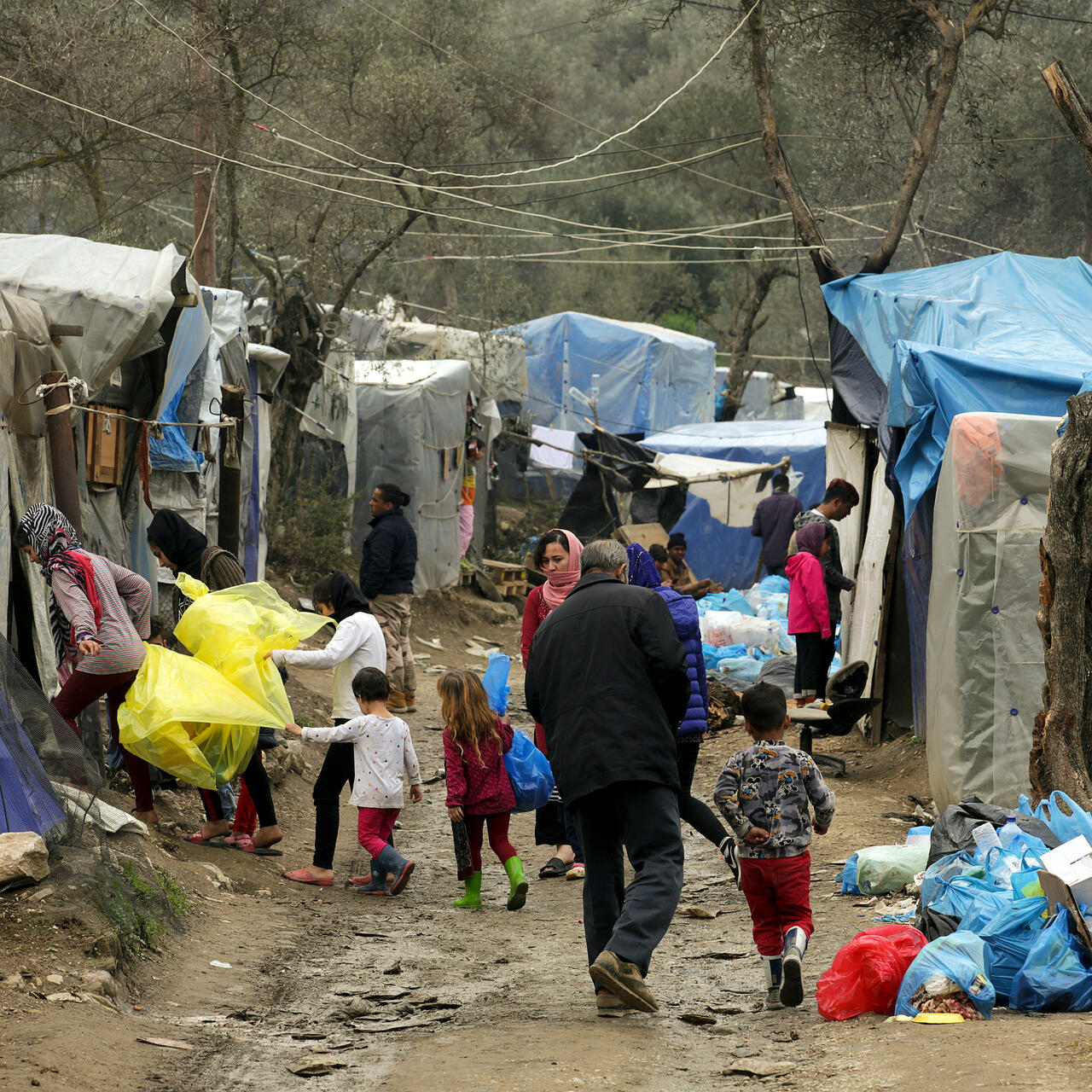
IRC Voice and Game of Thrones actor Lena Headey sat down with Kiki Michailidou, an International Rescue Committee psychologist, on Zoom last week.
The pair have met multiple times over the years during Lena’s visits to Greece to raise awareness about the situation refugees are facing on the island of Lesbos, where Kiki supports people with their mental health.
Lena, like many of us, is self-isolating at home—she’s in London with her young children. Kiki is also staying home, in Lesbos. A few miles away from Kiki, thousands of refugees are unable to do the same. They’re in Moria, an overcrowded reception center where 20,000 refugees are crammed together in a space meant for just 3,000.
Lena caught up with Kiki on a Zoom video call to understand how the coronavirus is impacting families trapped in these conditions. Here’s part of their conversation:
Lena
How are you doing, Kiki?
Kiki
I’ve had my ups and downs. Working from home is challenging. We have adapted the program and we have to provide phone sessions to our clients. That was strange to both the first few days but now we are accustomed to it. Our clients are really thankful, even for the phone sessions. We also go twice per week to Moria to distribute their medication because we don’t want them to run out.
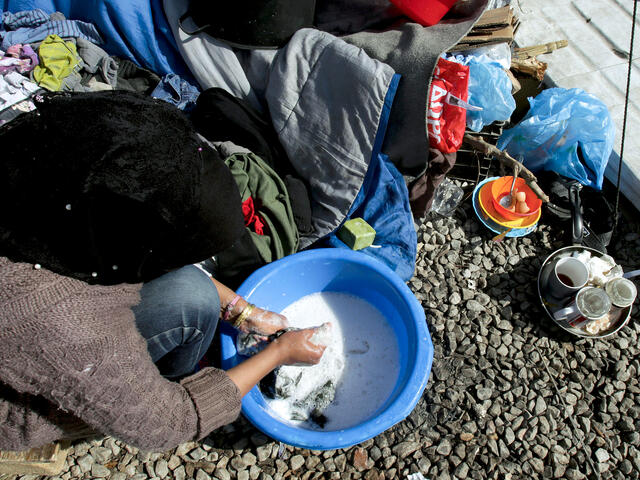
Lena
You’re continuing that lifeline that you give people. And what about in the camps? I mean, how do you self-isolate? It must be impossible.
Kiki
It is impossible. It is impossible. Nearly 20,000 people.
Lena
Oh my God.
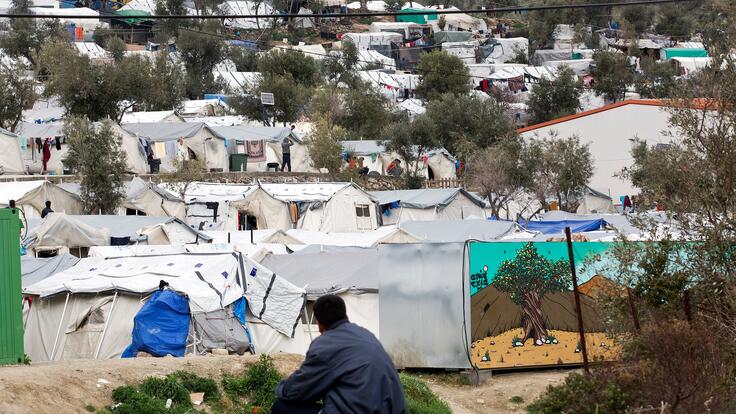
Kiki
Well, you've been in the camp, you've seen it, you've seen the food queues. So imagine things are even worse. There's not enough food or water, there’s daily tension and fights, we've had deaths. It’s like a prison to them.
Lena
Sitting here with the fear that I have, in a lovely house with space and my kids safe, I just can’t bear the thought of those women—and men obviously, I’m just speaking from a mother’s perspective. I can’t believe there are that many people there.
Kiki
It’s inhumane, it’s inhumane. How can people protect themselves from the virus if they don’t have the facilities?
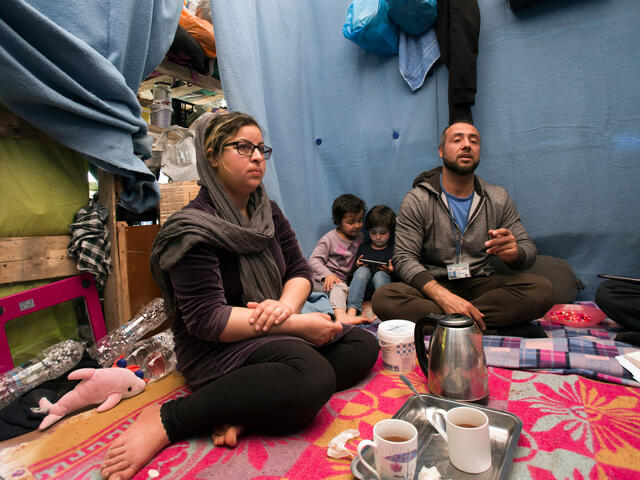
Lena
So what needs to be done?
Kiki
Really, what needs to happen, is that people need to leave to decongest Moria. I see that this is the safest option to give people the opportunity, especially the most vulnerable people, to isolate themselves and protect themselves. The humanitarian organizations that are working with asylum seekers and refugees are giving a list to UNHCR (the United Nations refugee agency) with the vulnerable cases they have so that they're put on the list to be transferred. We have about six cases. None of them have been moved yet. So it's going to be a slow process.
Lena
My overriding hope is that after this is over, and we're all allowed to move—those of us that have been used to our freedom—are allowed to move again. I wonder if it's going to wake up humanity in a bit more conscience and give birth to some compassion that's been lacking in us?
Kiki
Yeah. In a sense, we are experiencing a fragment of what the asylum seekers are experiencing, this lack of the restriction of movement and freedom.
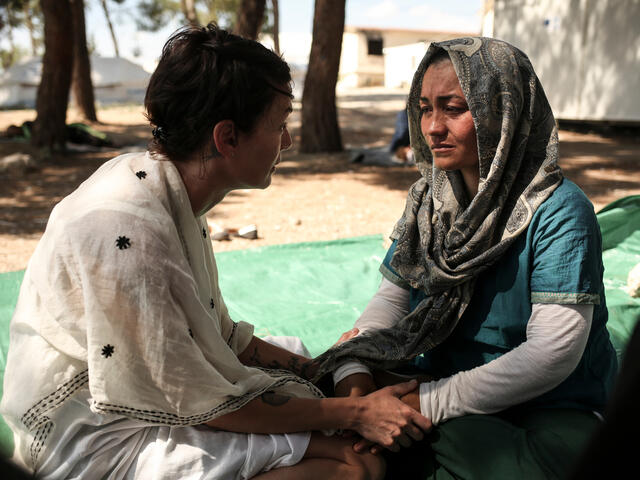
Lena
That’s what I’m saying, like we’re queuing for food...
Kiki
And if people struggle with being restrained in their homes where they have their showers and food, imagine how it is for refugees? So I guess at some level, it's like we have a common thing now. And we hear that from our clients that they will also ask: how are you? Are you safe? Because now we face the same threat.
Lena
Well. Kiki, you’re amazing. I'm in awe of you and your crew, as lots of people are.
Kiki
I’m very, very proud of my team, really.
Lena
Yes. It’s extraordinary. Thank you for the work that you do.
Read more about Lena Headey and the IRC.
Learn more
As well as vital mental health support to people stuck in Moria, the International Rescue Committee is also providing water, sanitation and hygiene kits to refugees on the Greek islands during the coronavirus pandemic. Read more about why refugees will struggle to follow the COVID-19 guidance.
As COVID-19 continues to spread globally, people living in crisis will be hit hardest. The IRC is scaling up our response to the pandemic, providing lifesaving programs to vulnerable communities in over 40 countries worldwide, including the United States. See our response in action.